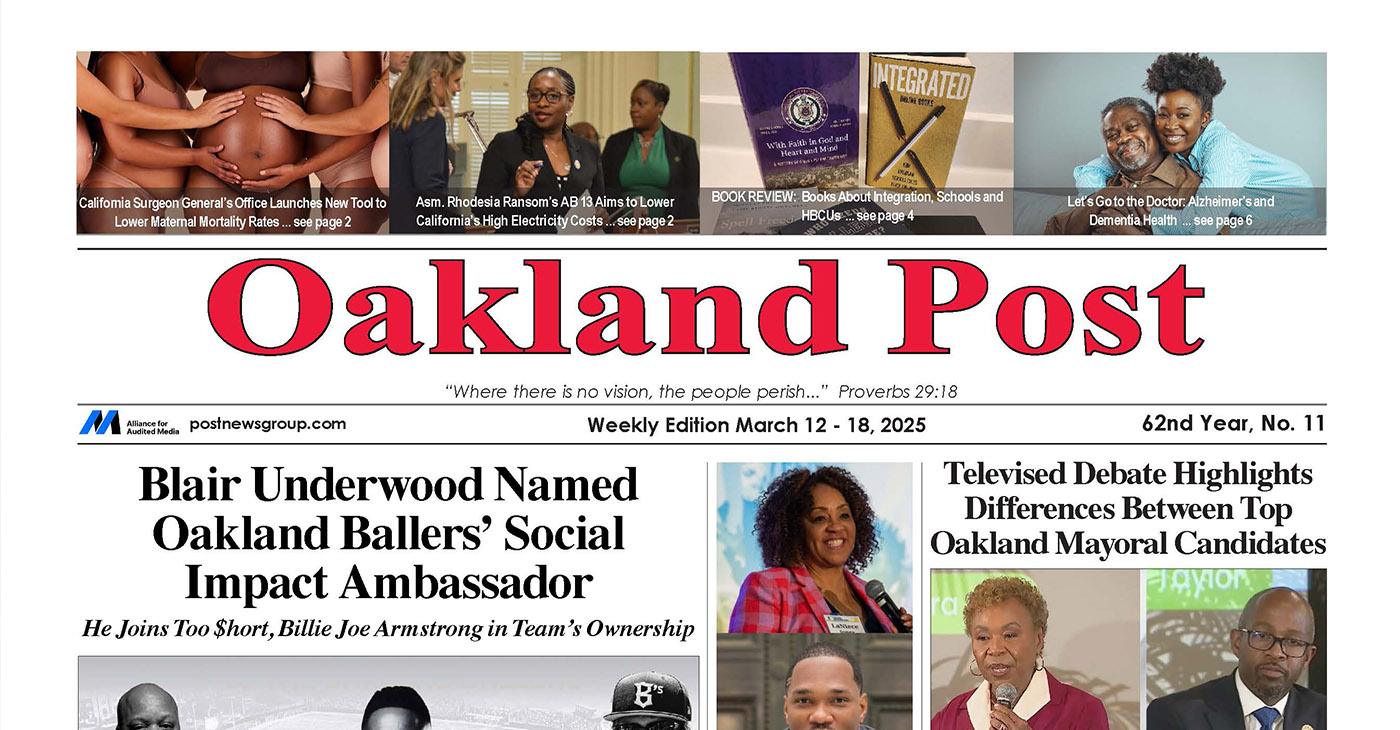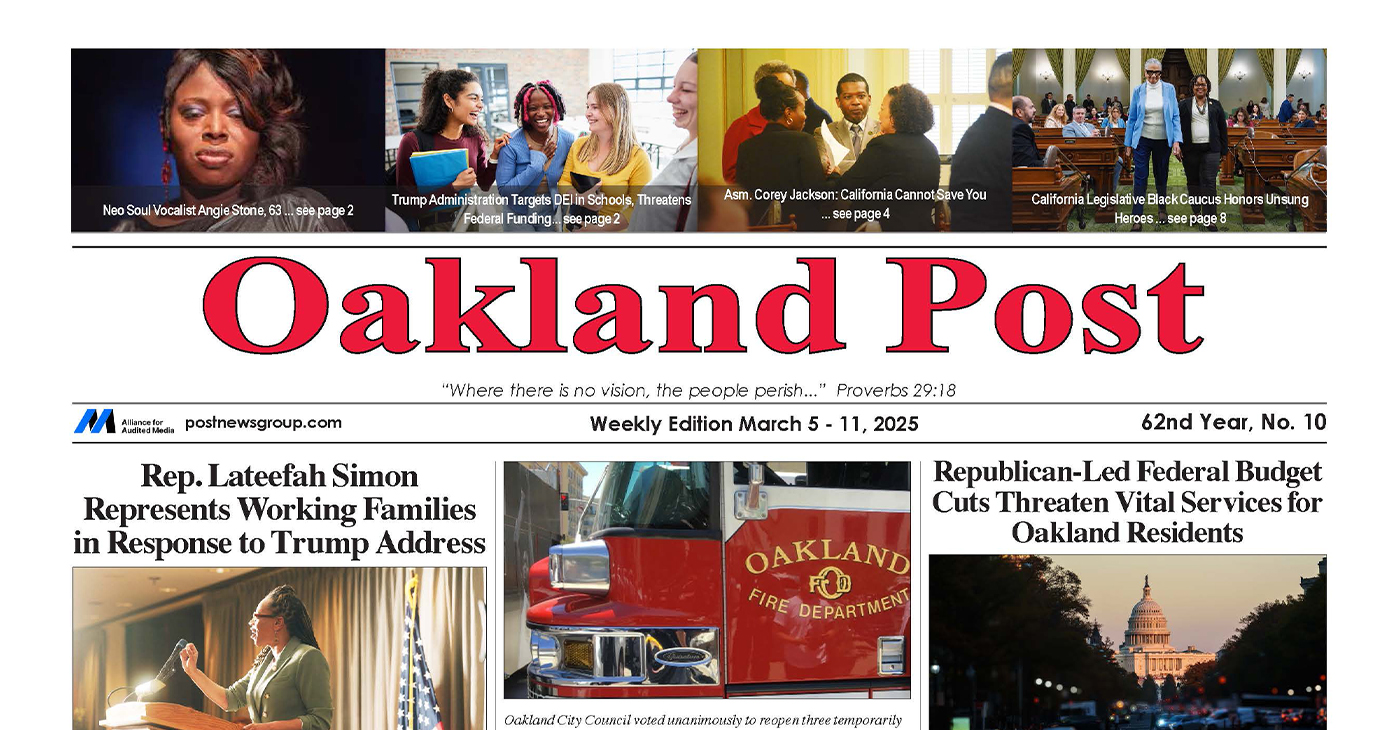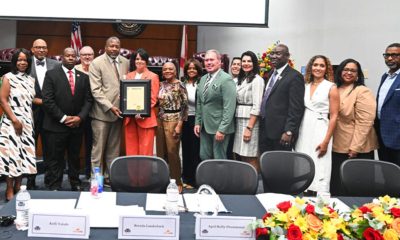Commentary
COMMENTARY: The Hypocrisy Surrounding the R. Kelly Debate
NNPA NEWSWIRE — “Where were all these Black women who now are pouncing on R. Kelly when all these booty-shaking videos were being made. And it is not just the fellas, you should see some of the girls who are making hyper-sexualized videos who portray themselves and other women as bithches and hoes and sex objects.”
By Raynard Jackson, NNPA Newswire Contributor
I usually don’t write about salacious issues involving sex, scandal, and other issues I consider a waste of time; but because of the volume of calls and emails asking me to give my take on Robert Kelly, a.k.a. R. Kelly, I will make an exception and share my thoughts.
I have worked in and around the entertainment industry for many decades. I don’t know, nor have I ever met Robert. We have many, many mutual friends and Kelly’s penchant for your girls have been known for decades.
While everyone is losing their damn minds over the Kelly situation, I don’t deal in emotion; I deal in facts. So, the fact is that I can’t allow the public and the hypocritical media to pile on a guy with no balance or context brought to the discussion.
Do I think Robert likes to have sex with young girls? Yes. Would I buy any of his music or go to one of his concerts? No. Do I think he should be in jail? ONLY if he is found guilty of a crime by a jury of his peers!
Before I go any further, I am putting the issue of statutory rape to the side for purposes of this column. Statutory rape basically means that a person under a certain age (it varies by state) cannot legally consent to engage in sex even if no coercion is involved.
The most overlooked point about the sexual allegations surrounding Kelly is that not one of the girls making accusations about him have accused him of rape!
Let me repeat, Robert Kelly has never been accused of raping any of his alleged victims. This is indeed very unusual for a person that is considered a sexual predator.
So, what does this mean? It means that despite what you think about Kelly’s proclivity for young girls, they all seem to be engaging with him freely and willingly, again putting aside the issue of statutory rape.
As so often is done in this internet age, people want to look at this situation in simplistic terms versus treating it as a very complicated issue with a lot of moving pieces. On this point only do I think Robert is most assuredly being treated unfairly!
A 14- or 16-year-old girl who goes to Kelly’s house or studio knows full well what they are getting into. His reputation is very well known. Yes, I concede that a 14- or 16-year old is easily manipulated, but so is an adult who is star-struck and only interested in fame and fortune.
Absent of rape, these women were willing to make a deal with the devil: Sex for fame and fortune. That’s the reality of the R. Kelly story, once of you strip the story of its salaciousness.
These women chose to get involved with Kelly no matter how much many of us think the decision was crazy.
The fact that a 14-year-old would decide to sneak around their parents and become involved with Kelly can lead an outside observer to question the home life of that child. The mere fact that a grown woman would get wrapped up with Kelly shows you the deleterious impact of all these hoochie-mama videos that even main stream R&B artists have produced. Yeah, the videos that many of you said, “were just videos.”
When you spend the last 30 years portraying women as sex objects through your movies, TV shows, and music videos, it is very easy to understand how these women can be easily taken advantage of.
Where were all these Black women who now are pouncing on R. Kelly when all these booty-shaking videos were being made. And it is not just the fellas, you should see some of the girls who are making hyper-sexualized videos who portray themselves and other women as bithches and hoes and sex objects.
You have women putting videos on YouTube of their 2- or 3-year-old daughters twerking and dropping it like it’s hot.
So, people like Lady Gaga, PLEASE spare me the sanctimonious symbolism of removing your duet with R. Kelly from your Spotify and other streaming sites.
She released the song, “Do What U Want (With My Body)” in 2013 and asked R. Kelly to sing on the song with her. She was damn well fully aware of Kelly’s reputation with young girls in 2013. Did anyone notice what she didn’t say regarding her song with Kelly?
She removed it from streaming services, but she made NO commitment to give back the millions and millions of dollars she made because of Kelly’s appearance on the song. What about the royalties she receives every time the song is played or someone purchases it? Kelly could very well be participating in the revenue stream from the song depending on what they each put in their contracts.
Because this whole controversy involves sex, lies and videotapes, people have lost sight of the bigger picture. Always follow the money. Everyone, and I mean everyone involved in the R. Kelly issue, has made money: the alleged victims (many have or are currently hocking books); many of the artists — who are suddenly condemning Kelly — have worked, toured, or appeared with Kelly — for pay; many mainstream media outlets have interviewed Kelly with the negotiated stipulation that the interviewer would not ask any questions about his sex life.
Kelly has never been convicted of any sexual crime, so it is hard for me to sit on the sidelines while he is being savagely criticized by the very same people who were his enablers because he was making them money.
This hypocrisy is going to turn Robert Kelly into a martyr.
Raynard Jackson is founder and chairman of Black Americans for a Better Future (BAFBF), a federally registered 527 Super PAC established to get more Blacks involved in the Republican Party. BAFBF focuses on the Black entrepreneur. For more information about BAFBF, visit www.bafbf.org. You can follow Raynard on Twitter @Raynard1223.
Disclaimer: The views and opinions expressed in this article do not necessarily reflect the official policy or position of BlackPressUSA.com or the National Newspaper Publishers Association.
Activism
Oakland Post: Week of March 12 – 18, 2025
The printed Weekly Edition of the Oakland Post: Week of March 12 – 18, 2025

To enlarge your view of this issue, use the slider, magnifying glass icon or full page icon in the lower right corner of the browser window.
Activism
Oakland Post: Week of March 5 – 11, 2025
The printed Weekly Edition of the Oakland Post: Week of March 5 – 11, 2025

To enlarge your view of this issue, use the slider, magnifying glass icon or full page icon in the lower right corner of the browser window.
Activism
Oakland Post: Week of February 26 – March 4, 2025
The printed Weekly Edition of the Oakland Post: Week of February 26 – March 4, 2025

To enlarge your view of this issue, use the slider, magnifying glass icon or full page icon in the lower right corner of the browser window.
-

 #NNPA BlackPress2 weeks ago
#NNPA BlackPress2 weeks agoTarget Takes a Hit: $12.4 Billion Wiped Out as Boycotts Grow
-

 Activism4 weeks ago
Activism4 weeks agoU.S. House Minority Leader Hakeem Jeffries and Rep. Lateefah Simon to Speak at Elihu Harris Lecture Series
-

 Activism4 weeks ago
Activism4 weeks agoActor, Philanthropist Blair Underwood Visits Bay Area, Kicks Off Literacy Program in ‘New Oakland’ Initiative
-

 Alameda County4 weeks ago
Alameda County4 weeks agoAfter Years of Working Remotely, Oakland Requires All City Employees to Return to Office by April 7
-

 Activism4 weeks ago
Activism4 weeks agoLawsuit Accuses UC Schools of Giving Preference to Black and Hispanic Students
-

 Alameda County4 weeks ago
Alameda County4 weeks agoLee Releases Strong Statement on Integrity and Ethics in Government
-

 Activism4 weeks ago
Activism4 weeks agoRetired Bay Area Journalist Finds Success in Paris with Black History Tours
-

 Activism2 weeks ago
Activism2 weeks agoUndocumented Workers Are Struggling to Feed Themselves. Slashed Budgets and New Immigration Policies Bring Fresh Challenges






















































5 Comments